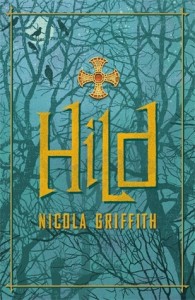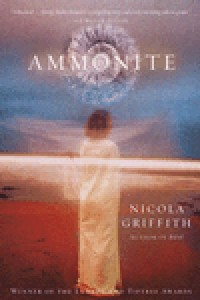What I’m Reading: “Hild” by Nicola Griffith
 Last month I admitted that next to speculative fiction, the literary “genre” I like best is historical (and that I include both fiction and non fiction under that umbrella.)
Last month I admitted that next to speculative fiction, the literary “genre” I like best is historical (and that I include both fiction and non fiction under that umbrella.)
Right now I’m reading another historical novel, Nicola Griffiths’ Hild—and so far, at around three quarters of the way through, I am absolutely loving it. I feel it is one of the best historical novels I have read in quite some time, not even excepting Hilary Mantel’s Booker prize-winning, Wolf Hall. (Which means I am spoiled, because I also really enjoyed my previous historical read, Robert Harris’s An Officer And A Spy.)
Seriously though, so far just about everything about Hild is fabulous: a great historical sense of seventh century, Anglo-Saxon Britain, excellent characterization—especially of Hild herself, but there’s a whole raft of other great characters, and just a wonderful richness of storytelling overall. I am really looking forward to completing the read and sharing my final thoughts.
 My moment of puzzlement: Hild was nominated for a Nebula Award this year, which is given by the Science Fiction Writers of America for works of science fiction or fantasy. But as above, I am currently a good three quarters of the way through this novel and so far can detect no sign of it being anything but historical fiction. So maybe I am the one who is confused, or maybe because Nicola Griffiths also wrote such wonderful novels as Ammonite (a longtime favourite) she is forever entwined with the genre in the good folk of SFWA’s minds…
My moment of puzzlement: Hild was nominated for a Nebula Award this year, which is given by the Science Fiction Writers of America for works of science fiction or fantasy. But as above, I am currently a good three quarters of the way through this novel and so far can detect no sign of it being anything but historical fiction. So maybe I am the one who is confused, or maybe because Nicola Griffiths also wrote such wonderful novels as Ammonite (a longtime favourite) she is forever entwined with the genre in the good folk of SFWA’s minds…
Oh, what is Hild about you ask—well, the story is a fictionalized account of the early life of the woman who became St Hilda of Whitby. For a little more information, here’s the backcover blurb:
“Britain in the seventh century – and the world is changing. Small kingdoms are merging, frequently and violently. Edwin, King of Northumbria, plots his rise to overking of all the Angles. Ruthless and unforgiving, he is prepared to use every tool at his disposal: blood, bribery, belief. Into this brutal, vibrant court steps Hild – Edwin’s youngest niece.
With her glittering mind and powerful curiosity, Hild has a unique way of reading the world. By studying nature, observing human behavior and matching cause with effect, she has developed the ability to make startlingly accurate predictions. It is a gift that can seem uncanny, even supernatural, to those around her.
It is also a valuable weapon. Hild is indispensable to Edwin – unless she should ever lead him astray. The stakes are life and death: for Hild, for her family, for her loved ones, and for the increasing numbers who seek the protection of the strange girl who can see the future and lead men like a warrior.
In this vivid, utterly compelling novel, Nicola Griffith has brought the Early Middle Ages to life in an extraordinary act of alchemy. Drawn from the story of St Hilda of Whitby – one of the most fascinating and pivotal figures of the age – Hild transports the reader into a mesmerising, unforgettable world.”
“Vivid and utterly compelling”: so far, I heartily agree with that.








Thanks for mentioning Nicola Griffith’s Hild! This novel sounds intriguing to me.
I think that the Science Fiction Writers of America may consider this novel to be historical fantasy and that’s why it was nominated for a Nebula Award. I’ve noticed that different readers have totally different opinions about what’s historical fiction and what’s historical fantasy (sometimes the line between these two genres is thin).
I don’t think you’ll be disappointed if you try Hild, Seregil.
In my view the novel is unquestionably historical fiction—and very good historical fiction, too—and not historical fantasy—but I have provided the reasons why in my “Historical Fiction vs Historical Fantasy, Using “Hild” As Context” post Thank you for prompting me to think it through!